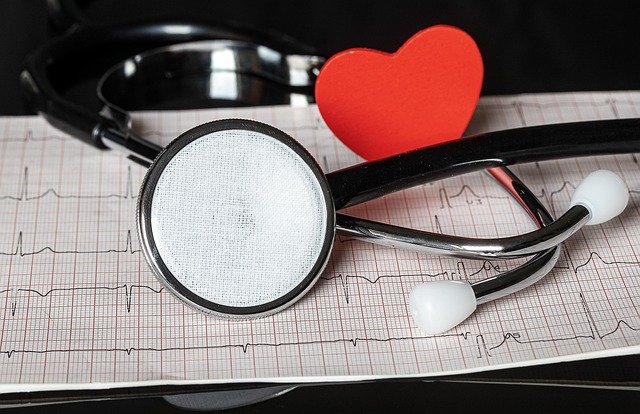Heart Health Mastery: Your Guide to Cardiovascular Wellness
Discover the keys to optimal heart health in this comprehensive exploration of cardiovascular wellness. From identifying early warning signs to navigating treatment options, this guide empowers you with essential knowledge to safeguard your heart. Learn how to recognize symptoms, understand diagnostic procedures, and implement lifestyle changes that can significantly impact your cardiovascular well-being. Take control of your heart health journey today and pave the way for a healthier tomorrow.

Recognizing the Signs: Early Detection of Heart Issues
Heart disease often announces its presence through subtle yet significant symptoms. Being attuned to these warning signs can be life-saving. Here are crucial indicators to watch for:
-
Breathlessness: If you find yourself struggling for air during routine activities or when lying down, it could signal heart trouble.
-
Heart rhythm irregularities: Experiencing palpitations or a racing heartbeat may indicate an underlying cardiac condition.
-
Persistent fatigue: Unexplained exhaustion, particularly during everyday tasks, might be your heart’s way of raising an alarm.
-
Edema: Swelling in your lower extremities could be a sign of fluid retention due to heart complications.
-
Chest discomfort: While not included in the original list, it’s essential to note that chest pain or pressure is a classic heart disease symptom.
Should these symptoms persist or intensify, seeking prompt medical evaluation is crucial.
Navigating the Diagnostic Landscape
Accurate diagnosis forms the cornerstone of effective heart disease management. Healthcare professionals employ a multi-faceted approach to assess cardiac health:
• Comprehensive physical assessment: Your doctor will conduct a thorough examination, checking vital signs and listening for any abnormal heart or lung sounds.
• Detailed medical history: Providing information about your symptoms, lifestyle, and family health background helps paint a clearer picture.
• Blood analysis: Specific tests can reveal important markers related to heart health, such as cholesterol and blood sugar levels.
• ECG (Electrocardiogram): This non-invasive test captures your heart’s electrical activity, potentially revealing rhythm abnormalities or signs of past cardiac events.
• Cardiac imaging: Techniques like echocardiography provide detailed visuals of your heart’s structure and function.
• Stress testing: These assessments evaluate how your heart performs under physical exertion, often combined with imaging for a comprehensive view.
• Advanced procedures: In some instances, cardiac catheterization may be necessary for a more in-depth examination of the heart and its blood vessels.
Tailored Treatment Approaches
Heart disease treatment is highly individualized, depending on the specific condition and its severity. Common strategies include:
-
Lifestyle modifications: Embracing heart-healthy habits like balanced nutrition, regular physical activity, stress reduction, and smoking cessation can dramatically improve cardiac health.
-
Pharmacological interventions: Various medications may be prescribed to manage symptoms, regulate cholesterol, control blood pressure, or prevent clot formation.
-
Interventional procedures: In certain cases, techniques such as angioplasty, stent placement, or bypass surgery may be necessary to improve cardiac blood flow.
-
Cardiac rehab programs: These structured initiatives support recovery from cardiac events and promote overall cardiovascular wellness through exercise, education, and counseling.
-
Implantable devices: For some heart rhythm disorders, devices like pacemakers or ICDs may be recommended to regulate heartbeat.
Recognizing Cardiac Emergencies
Swift action in cardiac emergencies can be life-saving. Seek immediate medical attention if you experience:
• Severe, persistent chest pain or pressure • Breathing difficulties coupled with chest discomfort • Pain radiating to the arms, back, neck, jaw, or stomach • Sudden, intense weakness or dizziness • Cold sweats or nausea accompanying chest discomfort
When in doubt about a potential heart emergency, it’s always better to seek professional medical help promptly.
Proactive Heart Health Strategies
While some cardiac risk factors are beyond our control, many aspects of heart health are within our influence:
-
Nourish your heart: Prioritize a diet rich in fruits, vegetables, whole grains, lean proteins, and heart-healthy fats. Minimize saturated fats, trans fats, and excess sodium.
-
Stay active: Aim for at least 150 minutes of moderate-intensity or 75 minutes of vigorous-intensity aerobic activity weekly.
-
Maintain a healthy weight: Shedding excess pounds can significantly benefit your heart.
-
Ditch tobacco: Smoking cessation can dramatically reduce your cardiac risk.
-
Master stress management: Practice relaxation techniques like meditation, yoga, or deep breathing to combat chronic stress.
-
Manage coexisting conditions: Keep health issues like hypertension, diabetes, and high cholesterol in check.
-
Moderate alcohol intake: If you choose to drink, do so in moderation to avoid potential cardiac complications.
-
Regular health check-ups: Schedule routine visits with your healthcare provider to monitor your heart health and address concerns proactively.
By embracing these lifestyle adjustments and working closely with healthcare professionals, you can significantly enhance your cardiovascular health and reduce the risk of heart disease. Remember, prevention and early intervention are key to effectively managing heart health.
Disclaimer: This article is intended for informational purposes only and should not be considered a substitute for professional medical advice. Always consult with a qualified healthcare provider for personalized guidance and treatment.




